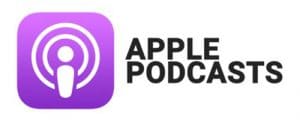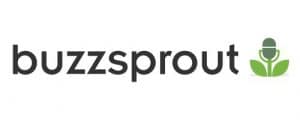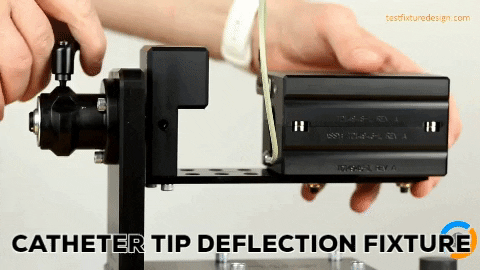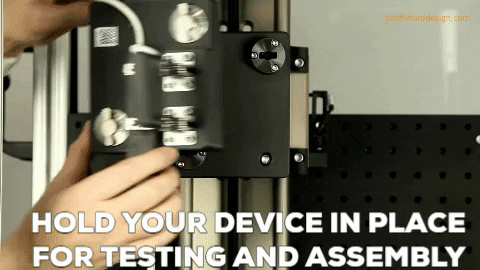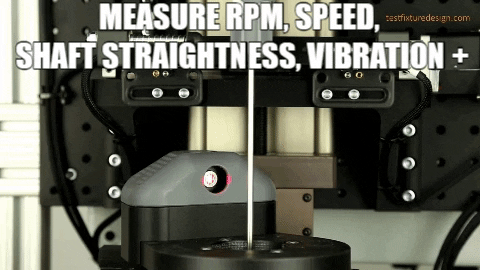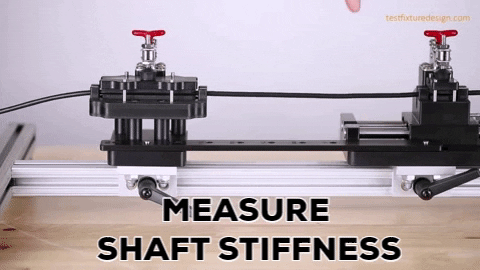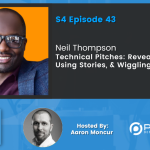S4E42 Pam Hurley | Technical Writing, Presentations, & Communications
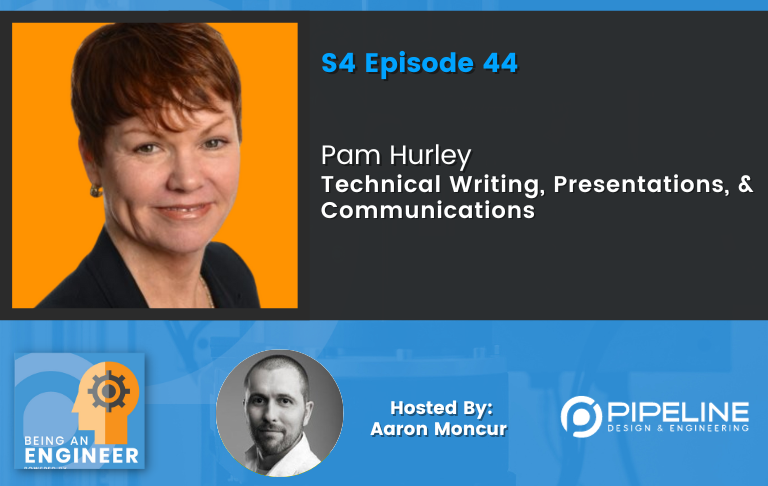
Who is Pam Hurley?
Pam Hurley is the founder of Hurley Write, Inc., where she has developed a curriculum that hundreds of companies use to improve their teams’ writing, reviewing, & presentation skills. Technical writing is an area in which many engineers struggle; if you’re one of those engineers, it is holding you back from opportunities that would otherwise be available to you. Listen to this episode to learn how to improve your technical communication skills.
EXPAND TO VIEW EPISODE TRANSCRIPTION
SUMMARY KEYWORDS
writing, engineers, write, writers, work, email, presentations, grammar, talking, information, good, document, great, readers, speaking, report, communication, pick, slides, point
SPEAKERS
Aaron Moncur, Presenter, Pam Hurley
Presenter 00:00
Hi everyone, we’ve set up this being an engineer podcast as an industry knowledge repository, if you will, we hope it’ll be a tool where engineers can learn about and connect with other companies, technologies, people, resources and opportunities. So make some connections and enjoy the show.
Pam Hurley 00:18
And say you have to make sure that everything works together, they have enough food and water and supplies and everything to get to the top of the mountain. And a lot of times, we just simply don’t do that. It’s just a lot of assumptions, a lot of focus on us and what we do, and very little focus on the client and the client’s needs.
Aaron Moncur 00:50
Hello, and welcome to another episode of The being an engineer Podcast. Today we’re speaking with Pam Hurley, who is the founder of Hurley write, Inc, where she has developed a curriculum that hundreds of companies use to improve their team’s writing, reviewing and presentation skills. From personal experience, I can tell you that technical writing is an area many engineers struggle with. And if you’re one of those engineers, it is holding you back from opportunities that would otherwise be available to you. So let’s get into it. Pam, welcome to the show.
Pam Hurley 01:24
Well, thank you for having me. I’m excited to be here.
Aaron Moncur 01:27
Tell me how did you first see the need in the technical world for better writing skills?
Pam Hurley 01:33
Oh, that’s a great question. I was teaching in academia. And I realized that a lot of the writing courses that were available, were just not preparing students to, to live in the real world. I developed the technical writing class, a foundational and then an advanced class with a head to use writing in real world applications. So had them do feasibility studies and things like that. Because the sad reality is, is that most universities are pretty poor job of teaching folks, especially engineers, how to write in the real world. And so my goal was to help them on that journey to understand that they weren’t have to write a lot of engineers like Oh, I’m we hear that from clients all I just wanted to be an engineer, I didn’t want to write, and not understanding that in most professions, you have to write and you have to write well, to your point, if you don’t write well, you are being held back.
Aaron Moncur 02:34
A very experienced engineer I worked with towards the beginning of my career once told me, the output of engineering is documentation. And documentation is is, uh, so critical, right? Not all engineers love doing documentation. But as part of the job, right? It comes with the territory. And I said it in the beginning of this episode, if you’re not good at technical writing, you’re missing out on opportunities that would otherwise be available to you. Yes, exactly.
Pam Hurley 03:04
Right. One of the things we talked about in our classes, one of the first things I say when I teach and hopefully my instructors do as well as the document is the deliverable. It doesn’t matter if you do great work behind the scenes if you can’t convey the results, or one of the things we see a lot with engineers, specifically is that they can be incredibly verbose, including unnecessary details such as really difficult for your readers to read and get through the information. It does. Your the work that you do behind the scenes just doesn’t matter, because the document is the deliverable.
Aaron Moncur 03:36
Yeah. I’ve alluded to this already. But based on the plethora of experience that you have had, what are engineers missing out on by not having great writing skills?
Pam Hurley 03:48
Oh, my goodness, the list goes on and on. And on promotions, we work with a major aerospace company, and their engineers to get to the position of fellow have to write personal essays, essays about why they should be promoted and things like that. And so they hired us to help those folks write those essays, because the essays were so poor, that literally one of the directors was spending days rewriting these essays for his engineer so that they can be committed to these pretty prestigious levels. So they’re missing out on opportunities in terms of business, they’re missing out on promotions, you know, they’re missing out on just, you know, one of the things about writing as people kind of tend to see it in a vacuum is that well writing is this one activity that we do that has no bearing on anything else that we do, which is totally incorrect. So the opportunity to build relationships, to build rapport, to show yourself in a professional light. All of those things people miss out on when their writing skills are poor.
Aaron Moncur 04:55
Yeah, I tell young engineers frequently that There’s only so far you can go in your career by being really good. Technically, that’s important for sure, you need to have at least a certain level of expertise in your field from a technical standpoint, but there’s a ceiling there, if your only skills are technical, if you don’t have the communication skills, the soft skills than there’s a ceiling beyond which it’s hard to achieve. But if you have that minimum technical skill set, and you’re also really good with communication and soft skills, there’s almost no limit to how far you can go.
Pam Hurley 05:34
Totally agree with you. Yeah, I mean, I totally agree, even even at comes with presentations, when you’re presenting information to, you know, to clients, to stakeholders, that kind of thing, they have to be clear, there has to be it has to be crisp. I mean, the interesting thing is that people’s attention span, I know, you know, this, I’m sure your listeners do as well, people’s attention spans have gone down to nothing. And so one of the things that engineers and all writers need to understand is okay, if that’s the case, then now how do we pivot? So that we can write documents for readers or make presentations for audiences who have short attention spans? Because that’s, that’s the, that’s the reality of that thing. So you have to be in a in a in a state where you’re constantly adjusting to meet your readers needs and to meet your audience’s needs.
Aaron Moncur 06:24
Yeah, I’m sorry, Pam, could you repeat that? I was checking my text messages. Oh, which one? I’m sorry, the whole thing. Just kidding. My attention span. That’s a good one. I love that. That’s awesome. All right. All right. Okay, so I appreciate it. Thank you very much. We have some wonderful, wonderful engineers here at pipeline. And I’ve noticed that, despite the fact that they have terrific technical skills, some of them not all of them are not the best writers. And the grammar gets me right, like misspelled words, inappropriate punctuation or lack of punctuation. So grammar is part of of writing. But what’s what’s the difference between good writing and good grammar? And which do you think is more important?
Pam Hurley 07:19
That’s a really great question. Good writing is far more important than good grammar will get caught calls all the time from builder grammar, the grammar steeks are blah, blah, blah, blah, okay, well, grammar is easy to fit, thinking not so easy to fix. And so one of the things we talked about in our classes, we very rarely ever talk about grammar, because grammar is something that can be AI can fix grammar for you. Ai can’t fix thinking. And so philosophers have said for 1000s of years that writing is thinking on paper. And so when you read something, and you’re like, wow, I don’t understand what this person said, people don’t give you the benefit of the doubt. They think, oh, well, Pam, she’s just she’s a terrible writer. She’s a terrible thinker. So the list, you know it, it really does snowball, people don’t look at something Oh, well, I think I know what she meant to say. They are not going to be forgiving, because the other part of that is people are bombarded with information. So thinking is critical when you have to think about. So one of the things I love about engineers is they are wonderful thinkers, they’re great strategists are great problem solvers. But when it comes to writing, all that falls to them all that falls apart. And I blame that on academia to be quite honest with you. Because as I’ve said, before, academia does a really poor job of teaching people how to write, they don’t, that they don’t marry it to critical thinking. And it’s one way and one way only and they view it as you know, they teach it as a linear process. First you outline and then you do the first draft, and then maybe do a second draft. Does that tell people right? But what if you’re not good at outlining? What if your brain doesn’t work that way? Right? When When engineers solve a problem, they don’t want to go what kind of goes one way to solve this problem? They look at multiple ways to solve a problem and writing is exactly the same battle exactly the same thing. There’s more than one way to solve any writing problem.
Aaron Moncur 09:17
I love the way you put that I guess it’s not you philosophers throughout the ages writing his thinking on paper. I’ve never heard it put like that before. But that makes a lot of sense. I love that. And I was going to ask you about well, what about programs tools like Grammarly? Don’t they just fix everything. But as you pointed out, they just fixed the grammar, not the underlying thought process, which is really the most important part of the writing.
Pam Hurley 09:40
Exactly. Right. Yeah. Because I mean, again, people make judgments about you based on your document, whether you like it or not, and you can have perfect grammar, right, and the document just be incomprehensible. In fact, most documents that we see are grammatically correct, right with maybe a few punctuation errors and things like that. But, you know, if I have a few misspelled words, but the content is there, I’m more likely to overlook the misspelled words. Now I’m not I’m not talking about agree just, you know, 50,000 misspelled words, one or two misspelled words, if the content is there, and the logic is there, then I’m going to be a lot more likely to overlook the grammar problems, because those are those are, that’s minutia that’s minor, we can fix that fat.
Aaron Moncur 10:27
I love that focusing on the core of the problem, not superficial stuff. I once heard someone talk about the writing reports within the context of engineering. And someone said, you know, reports are a waste of time, half the time the person writes the report, and it just sits on a desk somewhere, no one even reads it. So what’s what’s even the point of writing reports, and I can’t remember who this was. But the response stuck with me, I thought it was very insightful. The gentleman who is speaking said that the purpose of the report yes is to communicate some information to someone. But arguably the most important part of that report is to help the writer really concisely understand what he or she is trying to communicate, to clarify, in the writers own mind, what’s happening. And, and by the end of that process of writing this report, the writer really understands this content very well. And that’s as important, if not, in some cases more important than being able to disseminate that information to other people. And best,
Pam Hurley 11:30
that’s 100%. Correct. I mean, it’s something about writing it down, that makes it real, right. Because if you’re trying to think about things in your brain all the time, one of the things we talked about in our writing course is, you know, you have to know who you’re writing for. And we actually asked students to ask participants in our classes to write those things down. Because if it’s just going on in your brain, you’ve got a million things going on in your brain at any given time. But writing it down makes it real, and then you can work on it. And the other interesting thing, it’s called incubation, I don’t know what the scientific term for it is. But if you write something down, your brain is continually continuing to work on it, even if you’re not physically working on it. But that doesn’t happen if you haven’t written it down. So it’s it is it’s a, it’s a, it’s a great way for for writers to understand if they understand something, and I think it was Einstein, who said, If you can’t explain it simply, you simply don’t understand it. It was one of the it’s one of those really smart guys who said, you said that, and it’s true.
Aaron Moncur 12:29
Speaking of really smart guys who said things, there was a French philosopher Blaise Pascal, who once said in a letter to an acquaintance, I would have written a shorter letter, but I didn’t have the time. The inference there being that our communication can be shorter and more succinct, if we take the time to make it. So do you find that poor written communication is more often the result of not spending enough time on it? Or where lack of the skill?
Pam Hurley 12:56
I think it’s not spending enough time on it? I’m planning, most writers can be spending about 80% of their con planning, and only 20% of their time writing, but they don’t what most writers do is they, they hate it, as you suggested earlier, most most engineers, most professionals we talked to, you’ll ask, Hey, how many people in this class like, right? And you might get one or two people? And that is it? Right? So if you’re faced with a task that you don’t enjoy, human human beings being what they are, what did they do they put it all right, regardless of what it is, whether it’s writing, or whatever the whatever the case may be. And then there’s a struggle at the end, or this hustle at the end to get it done. When you do that, you’re not letting you’re not giving your brain the opportunity to solve that problem, that writing problem, who am I writing for? What am I trying to achieve? What do I want them to do? Etc, etc. You’re just kind of putting words on paper and and hoping for the best. The other thing I will say about this, though, is a lot of organizations, we’ve been in business for 35 plus years. So we work with a lot of companies, a lot of companies give lip service to good writing, how important it is, et cetera, et cetera, et cetera. But what they don’t do oftentimes is give their writers this time in the space, they need to really solve that writing problem. So it’s, it’s, it’s on both sides, if you will, that we need to get it done. You need to produce this report this procrastination on the part of the writer. And oftentimes, organizations don’t simply don’t give their writers the tools they need to be successful writers.
Aaron Moncur 14:30
I had an English teacher in high school who said something I’ve always remembered, and I’ve applied it to design that I think is very true there as well. But what she said was that which was easy to read was difficult to write.
Pam Hurley 14:42
Absolutely.
Aaron Moncur 14:43
Yeah. Do you find Oh, I’ve heard from a few different sources that writing stimulates the brain. I mean, the act of writing stimulates creative thought, and I’ve certainly found that to be true in my own life. Is there a difference in terms have the degree of creativity that gets generated between handwriting versus typing?
Pam Hurley 15:08
That’s a really interesting question, one that I don’t have the answer to, I think a lot of it just depends on the individual him or herself and what works for them. There’s a lot of writers, for instance, who liked dictation. And just talking into a, you know, a recorder stimulates their, their creative pod. So, personally, I like the mic. My handwriting has gotten so forth that with the advent of the computer, I think if I hand wrote anything, no, but I wouldn’t even be able to read it. But a lot of it I think, just depends depends on the individual. But your point is a good one. I mean, the point is to write, right you should be writing in research versus this isn’t something I just made up, the research bears out that people should be writing a minimum of 15 minutes a day, something not an email. But uninterrupted writing, even if you just write about the green leaves, or whatever it is, you want to write about that you should be doing that 15 minutes is nothing most of us we waste 15 minutes a day on social media, and a lot of social media enemy or anything, I’m just saying that the other thing that that research tells us is that we should be reading for a minimum of 15 minutes a day. And not the normal business work stuff that we read, you know, but novels and newspaper articles and magazine articles and etc, etc, etc. Things that may we may be unfamiliar with reading. Because we pick up nuances in language, we pick up style, we pick up vocabulary, I mean, you’re talking about 30 minutes a day, going back to your original point to enhance your you enhance your career and enhance your communication skills. Yeah,
Aaron Moncur 16:51
you know, another thought that just came to me a little bit tangential, but I want to put it out there is that writing is a great leveraged tool. If you’re speaking to someone, there are only so many people that you can speak to, right, because you kind of have to be in person. I mean, these days, there’s like teams, right and things like that. But still you’re you’re kind of one on one, or maybe one to a few something like that. versus writing, if you can write something that can that can be disseminated to so many different people, especially with social media, right? Putting articles out there and things like that a lot of people can read what you’ve written. And it’s, I think, a little bit more difficult to reach as many people simply by speaking, I suppose there are videos out there as well. But still,
Pam Hurley 17:37
you’re 100% Why we worked with an engineering firm. This was a couple of years ago, when they were trying to write you better placed on LinkedIn. And so we work with them, helping them understand what their value prop was, and hoping that because they didn’t veneer for like, this does this, and this does that. And this doesn’t count. And it’s like, Oh, who cares? Nobody, right? Because what people care about, you know, when you at the end of the day is how documents affect them, or how whatever it is, you’re selling effects, and they don’t care how the you know, oh, was made in 20? You know, 2021? Who cares? Nobody. So we really kind of tried to help them. Because people do business with companies that they trust, right? And so people care about how these affected them. And that’s one of the things we talked about in our classes as well. Write a document that people understand how they’re going to be affected by it, right? Don’t just give them a litany of information was so well, what am I supposed to do with this information? Right? So a good a good writer. I’d say I use the word manipulate, and I use it in the best possible sense. I don’t use it as being unethical, but a good writer manipulates the reader to take the journey with them. And to get to the conclusion that the writer wants them to get to you don’t want to read or to come to a conclusion that is not the one that you wanted him or her to get to. So it’s it’s it’s very strategic and it’s it’s mind blowing to me that strategy, is it really taught along with thriving, it’s called like, well, here’s here’s how to write and here’s grammar, here’s language, and this is you know, but you know, the, the underlying principles of good communication, like strategy are very rarely discussed.
Aaron Moncur 19:27
Yeah, right. Well, one of the areas that you work in is teaching folks how to do effective presentations. What are a few common mistakes that you see engineers making when making presentations?
Pam Hurley 19:42
reading off the slide was number one, get
Aaron Moncur 19:46
rid of the slides. That’s bad.
Pam Hurley 19:49
Well, you can, but people don’t like it very much. When I sit there, I don’t know if you’ve seen those his guy on YouTube and I can’t remember his name, but it’s called avoiding death by PowerPoint, but he is a neuroscientist, you I’ll send you the link, but it’s wonderful to watch. But he’s the talks. He says, you know, people, I don’t want to watch them dead whose death by PowerPoint, and then they go into their office and they do exactly the same thing. Well, you get to do with me. So it’s really interesting. So really, but I paid you a bigger problem than that is that people just cram their slides full of information. I mean, they’re full. We work with the client a couple of couple of months ago, in sales in their flies, and they they’re taking the slides, and they’re presenting the product, you know, sales and how much the what’s grown, you know, blah, blah, blah. And they take the same information. And they present it three different ways on the same slide. I mean, I might, what is that? I mean, you know, a busy a busy owner, or whomever it is, is it well, I don’t know, which one of these three things should I pick? Up the information? Yes. Very confusing. And so that I think is, is one of the one of the worst is just it’s PowerPoint. It’s not power pros. Right. So. And I came up with that all by myself.
Aaron Moncur 21:09
Clever. Yeah. Love it. Yeah. But I think
Pam Hurley 21:12
those are the two of the two of the biggest things, and then people get nervous. And, you know, a lot of times, you’re better off just not tap PowerPoints at all, or just have a few, you know, just very few, let’s just succeed points, but people are terrified. I think oftentimes, I mean, they’re, they are a security blanket, right, pal.
Aaron Moncur 21:32
But yeah, you can just read it. That’s easy. If I have to speak extemporaneously
Pam Hurley 21:35
Watch out. Exactly. Yeah, that one.
Aaron Moncur 21:39
Well, how about some things that that we should be doing during presentations that maybe not many of us are doing?
Pam Hurley 21:46
Well, I think one of the things she does practice, a lot of folks don’t write, but they do just read off the slides and then practice without your slides. I mean, can you speak intelligently about your topic? Probably, you can. But oftentimes, the slides are actually a hindrance, because you’re relying on them, instead of thinking about the natural flow of a topic and how the how topic about the topic leads from one subject to another. Whereas if, if you were talking with you and I were talking, it would probably be a totally different presentation than having the slides there that are this constant reminder. We don’t even use slides when we teach classes, because I find them to be a tremendous hindrance. I mean, if I can’t talk about it, make my point without slides, then then what is the point? So practicing is one thing and being aware of alternate ways to present the information. understanding who your audience is, that is tantamount, and I don’t mean to say no, I’m speaking to people at such and such a conference. Well, what do you know about these people? I mean, right? What are some things that you would want to know about them, maybe you want to know that their attention spans are short, okay, maybe you want to know that they’re experts or non experts, or whatever the case may be. And a lot of folks, a lot of writers and presenters never take the time to do that. They just make assumptions. And I’m not saying you always know who you’re speaking to intimately. But if I have a certain position, if I’m a CEO, for instance, your sort of assumptions I can make about you, right? And then how do I then cater my presentation for that, and then just general speaking, you know, speaking, skills, rushing, not taking breaths, not using reflective pausing. I mean, there’s all kinds of things that are standing still like a stone, or like a statue, you know, and just not being engaging, are some of the mistakes that a lot of presenters make, not just engineers, a lot of presenters.
Aaron Moncur 23:45
Wonderful, those are super actionable tips. Thank you for sharing all of that. Now. We’re gonna get right back to the questions in during a short break here. Pipeline design and engineering is the sponsor of the being an engineer podcast. And at pipeline, we develop new processes, process development, r&d, could be a test, new test process or a new inspection process or manufacturing process. And then we build custom equipment and automation around those processes. So if you are in need of having a new process developed, and then having custom equipment, fixtures automation built around that process, please reach out to us at Pipeline, you can contact us at Team pipeline.us is our website, or send us an email at info at Team pipeline.us. All right back to the reason that we’re actually here today. Pam Hurley, Pam outside her presentations, for example, like technical reports, or even emails, what are some tips that you can share about improving our writing outside of the presentations,
Pam Hurley 24:49
take the time to plan in
Aaron Moncur 24:53
80%
Pam Hurley 24:54
You say right or sad 80% Should you should be planning there’s all kinds of things that are involved in that out, but people just tend to rush to, to write instead of taking the time to really think about, who are you writing for? What do you want them to do? Right? What’s the outcome? I always go back to. I don’t know if you’re familiar with the author, John Irving, he wrote A Prayer for Owen Meany and the world according to gar. But he when he writes a novel, he starts with the last sentence. And that’s a starting point. But we don’t do that we start from the beginning and work our way to the end. So anything, one of the things that all writers can do better is to start from the end and reverse engineer the document, if I know where I’m going, it’s going to be easy for me to get there, I’m going to go see the big ball and go on a Kansas, I’m not going to just get in the car, start driving around and hope I get that. But that’s what we do with writing, we start writing, we hope, we hope that we get there, we oftentimes don’t even know what we’re trying to accomplish, that if I know what I’m trying to accomplish, then that necessarily would limit the kind of the amount of information like that I can include. So we always encourage our writers to start with the start, start with the end. And reverse engineer.
Aaron Moncur 26:11
That’s terrific. I’m, we started a program called CAD club at pipeline where we open our doors deciding, it actually is super cool. Pam, thank you very much, you would be blown away if you did cat club. Now we opened our doors once a week to kids in the community and teach them CAD and engineering skill law that really the purpose is to help these kids see what healthy adult behavior looks like. Now, some people argue my behavior is neither healthy or successful. But nevertheless, we have other people here to demonstrate that that behavior. And anyway, I bring this up because I am putting together the a new set of curriculum for the next term of caddy club. And as I was writing down some things I thought, you know, I don’t feel like I have really great direction here. So I kind of stopped and took a step back and looked high level. And so at the end of this class, what do I want these kids to walk away with? And I wrote down what I want, I want them to know this. And I want them to know this. And I want them to know that. So that was my last sentence. basically write effectively. These are the things I want the kids to walk away with at the end. And once I had the end in mind, then it was a lot easier to go back and say, Okay, what is week one look like? What is the week to look like? So anyway, I really appreciate what you were just saying and agree 100% with it that that makes a lot of sense.
Pam Hurley 27:30
Yeah, absolutely. And thank you for doing that for kids. That’s awesome.
Aaron Moncur 27:36
It’s, it’s been amazing. We we’ve had a great time, we finished the first term last month, and we’re starting the second term next month, and it’s picking up steam. We’ve got some excellent partners here in Phoenix, who different schools, public schools that we’re working with, anyway. It’s a great, it’s a great little program. Just something else I was gonna bring up what was it? It was there was CAD club we’re talking about and beginning with the end in mind, it’ll come to me. Anyway, another area that engineers are often called upon to help with writing is is creating proposals, right, this customer might want a new project, we have to write a proposal for it. This might be some of the same answers. But what what are some tips that we can use to write effective proposals, you know, with with the goal of closing more deals, ideally,
Pam Hurley 28:27
focus on the client. Nobody cares that you were founded in 1827. Nobody cares. I mean, you really have to focus on you have to figure out what the client wants, what is the client looking for? People don’t care about all that other stuff. Right? So one of the biggest, one of the biggest mistakes we see in proposal is just this litany of all the things that we’ve done. And again, we’re grading good for us and all this other kind of fun stuff, with no connection to how all that fun stuff relates to solving the client’s problem. Right, they come to you because they have a problem. How are you going to help them solve the problem? Right. And so, you know, again, engineers love details. Right? Great, nothing wrong with details. But if you’re going to include information, you have to you have to make sure that that information is somehow related to solving the client’s problem. Right. And that’s, that’s one of the biggest things we see in most proposals is just this kind of, well, I’m going to assume that they understand that because we built the Golden Gate Bridge that they understand how that’s going to solve their problem about trying to create a footpath through their community or whatever the case may be. Right without making that connection. One of the things and I alluded to this a little earlier, readers are on a journey, and you’re the Sherpa and assurance sponsibility to guide them on the journey to the meadow or the mountain or wherever it is, you’re taking them. And so you have to make sure that everything works together, they have enough food and water and supplies and everything to get to the top of the mountain. And a lot of times, we just simply don’t do that. It’s just a lot of assumptions. There’s a lot of, they’ll know what things mean, they’ll know the connections, I’m trying to make a lot of focus on us and what we do, and very little focus on the client and the clients knee.
Aaron Moncur 30:33
I think you’re spot on, it reminds me of a situation that we had here, situation is a strong word for this. But I was copied on some emails, and a customer of ours reached out and said, Hey, I need some support on on this item. And one of our engineers responded and said, Okay, well, I, I need to remote into the system to provide that support, and an email. And I’m thinking, Okay, what the customer really wants is the support, he doesn’t want to know what you need to do to give him that support he wants to support. So let’s guide him, you know, tell him exactly what the next step is. And that was the part that was missing says, I need to remote into to do that support period and of email. Really what it should have said is I need to remote in to do that support. Are you free this afternoon at 3pm? So that I can do that. Right? It’s like you said, guiding the person. If we don’t know that, if the recipient doesn’t understand very clearly what the next step is, then we have not done our jobs communicating, or our engineering manager here. Michael loves to say the the meaning of our communication is the response that we get. Absolutely. Yeah, we don’t get the response we want. It’s probably because our communication was insufficient for
Pam Hurley 31:50
some way. That’s exactly right. If readers don’t come to the correct conclusion, and it’s not on the reader, it’s on the rider. It’s the always the writers fault. I mean, report. Yeah, absolutely poor design. And I, I get emails, because sometimes people are I’m in a hurry, or whatever the case may be, but emails are probably as important if not more important, than a report or something like that, because it’s so immediate, right? And it usually requires some action pretty soon or immediately. So, but people just kind of treat emails, like, I was just like, I’m just gonna do instead of thinking about branding it like Like anything else, especially with a client.
Aaron Moncur 32:31
Yeah, I’m gonna go back to proposals really quickly here. I’ll say this in the context of proposals, but really, it’s true with with any kind of written communication. It’s almost disrespectful when we just dump all this information in some of its relevant some of its not. It’s almost like we’re requiring the recipient to sift through all of this junk and figure out okay, what’s the one paragraph that I really need to know here? Right? In journalism, that’s called burying the lede, basically, how often are we burying the lede as we communicate with whoever it is we’re talking to? Lately, one thing that I’ve been doing because I fall victim to this myself, I’m not perfect, I will start writing something and I’ll ask myself, what is the most important point that I want to get across in this, whether it’s an email or an article I’m writing? Lately, I’ve been writing a lot of articles. So that’s largely where this has been. But what is the most important thing that I want the reader to understand? When this is done, and I’ll write it down. It’s usually just one or two sentences, right? Very quick. And then as I’m writing, I can I can look back at that sentence and say, okay, are the things I’m reading supporting that? Or are they going off in some tangents and not not really relevant to that? The lead the, the point of this whole thing, and that’s been a helpful tool for me to stay on track and make sure that I’m producing content that’s relevant to the message I’m trying to communicate.
Pam Hurley 33:52
Now? Yeah, absolutely. That’s what we were talking about before, start at the start at the end. I mean, where, where, where do you want your readers to go? What conclusion do you want them to draw? Yeah, right. Right. What action? Is there an action you want them to take? What is it? Okay, great. Okay, I want them to, you know, go get the garbage can or whatever the case may be. Okay, well, what do I need to do? What did they need to be able to complete that action successfully? You know, without making people work so hard. I mean, goodness gracious. So many of the documents you pick up business like oh, and and what what a lot of writers don’t understand is, you know, it’s this idea what I write and they’ll read it. Well, lameness is sick necessarily, because if they’ve gone 13 documents from me, which had been pretty poor, when DoD when document number 14 comes along, they don’t but can’t wait to read this. They’ve had a lot of practice, they should be better now. They’re making decisions, because everybody’s time constrained and we’re bombarded with information. And so if not, they’re not going to say they’re not going to give you the benefit benefit of the doubt. I mean, readers are probably less forgiving now than they’ve ever been, because they have so there’s so many The sources, there’s so much information, it just be thrown at them all the time. So it’s really important that you’re in a war for eyeballs essentially. So it’s really important that you make your documentation shine you make it so that they want to read it. Not that this all happened this at the bottom of the pile. Yeah.
Aaron Moncur 35:19
And be specific. I think that’s a really important thing. Another example, I’ll share, I was copying on another end, another email, right? This one came from us to a customer to one of our vendors, actually. And the email said, How is I can’t remember exactly how it was phrase, but how was the machining work coming is more or less what it said, Now really, what we cared about was, when are we going to get our parts? That was the question that we really were trying to ask, but the words we used were, how is the machining work coming along? Right? So the vendor responded, and said, Yeah, this is fine. This, this is what we’re working on right now. And then we’re gonna work on that thing. And you know, we’re doing our best thanks for checking in, I guess. And so, alright, well, let’s they responded to what was the meaning of your communication is the response that you get, right. So a better way to word that would have been? Hey, thanks so much for what you’re doing for us. We sure appreciate your help. What day do you expect to have this all delivered to us right back? That would be the specific way to ask that question. And by the way, I’m kind of picking on a couple people on the team right now. But let me just put it out here that they are far better engineers that I am. I’m just so so engineer at best on a good day. They are way more talented than I am. When it comes to engineering. I happen to be, I think fairly good at communication. So I picked some of these things out.
Pam Hurley 36:40
No, that’s fine. Yeah, specificity is key. It’s it is interesting. And I suddenly we talked about this, you know, in our email writing classes, that there’s this tendency among us for some people to just be so it’s so wishy washy. And so they’re surprised when they don’t get the response they want. And then it’s like, well, now I’ll say, Well, what have you thought about doing it this way? And then well, that’s just really that’s just, it’s not rude. It’s business. There’s a big difference between me asking you for a favor. Would you please, you know, get the report done by Friday at five o’clock versus the report needs to be finished by Friday at five o’clock. But it’s it’s interesting, kind of, I don’t want to come across as rude. I don’t want to Well, then you’re probably not gonna get what you want to get. Right. It’s business. It’s not it’s not a failure. It’s just like people beginning emails with a hope all as well. Oh. Hey, how are you doing? Oh, my God, I just hate that. And people are like, well, you just, you’re just the announcer like, you’re not being nice, because everybody does it. Everybody uses those words to start a need muster. How are you being nice? What you’re doing is you’re saying, I’m just like all the other sheet. That’s what you’re doing? If you really want to be nice, then think about is there some kind of personal, something that you could start the email with? Whatever. It’s just it’s just interesting that people just, well, you’re right. If you don’t know you’re not, you’re not rude.
Aaron Moncur 38:13
I had a sales coach who called those hate emails, H A Y T stands for how are you today? Right? Because so many people started with how are you today?
Pam Hurley 38:25
Fine. Well, my cat died this morning. And then I got stuck in crap and had a flat tire. I hate life right now.
Aaron Moncur 38:33
How are you? No hate emails, no emails, nothing to
Pam Hurley 38:37
think about with emails is the expectation is that they’re going to be brief and to the point. So if I have something I need you to do, I’m not going to start and have a whole paragraph of fluff. Before I get to the ask. I respect you. You’re busy. Let me get to the ask first. Right. And that’s, that, that shows more respect than having a paragraph full of stuff that nobody cares about. So I love it. Yeah, yeah.
Aaron Moncur 39:04
What are some skills that we can use for for in person presentations, where like, maybe we’re standing in front of a group, you know, it could be a presentation, but or maybe it’s like a live thing. Maybe we’re standing up in front in front of a large group doing a q&a session or something like that. And he tips for for like, live in person communication?
Pam Hurley 39:23
Yeah, I think one of the things that people need to do is beat themselves. I think too often when people are doing live presentations they take on this persona that really isn’t them. And so, you know, thinking about being engaging, laughing, you know, just trying to relate, relate to people in a way that they that they like you and want to and want to speak with you. I think when you when we are standoffish and I know that you know, even if you’re shy, there are techniques and strategies that you can learn to be more engaging and compelling. Even tone of voice can change can help smiley can help right so a lot of us don’t remember stands, we have a lot of these, a lot of these strategies, a lot of a lot of these things that we can do, just tone of voice smiling, being engaging icebreakers, that kind of thing can help. You know, and being and being human. You know, if you don’t know the answer, I don’t know the answer, but I’ll find out for you or whatever. Instead of feeling like you’re, you know, you’d have to, you’d have to answer every question even even if you don’t. And then of course, I know, this never happens to anybody else. But sometimes in presentations, you’ll have people who will ask questions that aren’t related. I know that’s shocking. And then so being able to, you know, to handle those kinds of folks and turn that into a question that is related to whatever it is that you’re talking about. But a lot of it is a lot of it really is practice. I’m a huge fan of Toastmasters. I don’t know if he was at Toastmasters, I’m a huge fan. They are they do a remarkable job. And a lot of organizations bring bring their honor, and if it’s a club, or whatever it is, but make it their organization that reflects just being human being being relatable.
Aaron Moncur 41:07
Alright, just one or two more, and then we’ll we’ll wrap things up here. Hopefully, this next one is not sacrilegious for you, but when should we not write and just pick up the phone and call someone or have an in person conversation,
Pam Hurley 41:20
lots of times, I was interviewing for a job at a university, and went through the process and everything I was working at at the university as an adjunct. And I didn’t get the job. And guess how they told me even now,
Aaron Moncur 41:39
it’s pretty common these days.
Pam Hurley 41:41
That’s pretty That’s cold. I mean, that that it was just me, right? So it wasn’t a mass email. You know, it was just me. I mean, and then I was right down off the hall from the person who should have told me. So if it’s something very complicated, right, oftentimes, picking up the phone is better than than an email, if it’s something that you don’t want others to particularly know about, then picking up the phone is a good, it’s a good, it’s a good way. And it’s a great way to establish rapport. I mean, especially if somebody maybe somebody’s new, somebody’s confused, you know, picking up the phone, you have to think about the medium, what’s the medium, and a lot of people, you know, rely on email or default to email when email may or may not be the best way to solve the need or to solve the problem.
Aaron Moncur 42:27
Yeah, yeah, I like your example there. The individual who maybe should have walked over to your office and given you the news, I will, in situations where it’s a delicate topic, or maybe sensitive information that’s being shared, I actually like to write it out. First, I’m not going to send that. But I’ll write out what I want to say and the points that I want to cover. Because as we all know, tone and and gesticulations, and facial expressions get lost in email, right. But I found it very helpful to write it out beforehand. So I kind of have a pretty good understanding of what I’m going to say how I’m going to frame the conversation, and then I’ll have the conversation in person. So that you know, the tone and the emotion isn’t lost in in just words, but I also know that the words that I’m going to say, and that’s been a good, kind of not a compromise, but a good way of utilizing both mediums written and spoken.
Pam Hurley 43:31
Well, I think you’re absolutely right. I mean, I think sometimes when we don’t write things out, and we just speak to that can be, that can be disastrous, is probably too strong a word, but I certainly know that I, that I that I’ve done that, and when I wish I would have written it down. But you know, even talk about you know, with emails, write, write the email, if you’re angry or whatever, write it out, write it, but you don’t have to send it, you want to just, you know, let the brain kind of stew over. Yeah, if it’s the best way to provide the information, but a lot of times is just, it’s just, you know, that the thing about emails is there’s this anonymity about it that I don’t, I’m not particularly fond, when you you know, your, your, your emailing people with ping may be unfamiliar, or you’re, or you assume people are a certain way when they’re not. Yeah, that, that kind of thing. So emails can be great. But they can also be very, very tricky. So I I like your approach. I think it’s smart.
Aaron Moncur 44:36
That goes back to something we talked about earlier on as well, where sometimes the act of writing it out, the most important part of that is it clarifies in your own head, what the message actually is right? Versus like you said, if you just go to someone and start talking, you might not get the right message across because you haven’t really thought it through. And just the act of writing it out really helps you to think through what you want to say in clarify in your own mind before you start talking with someone else,
Pam Hurley 45:02
right, and how did you get the 15 minutes of writing that you should be doing? So there you go.
Aaron Moncur 45:06
you go. Perfect. Perfect.
Pam Hurley 45:09
You kill two birds with one stone.
Aaron Moncur 45:12
Pam, This has been delightful. I love communication. I think it’s so important. I like talking about it. And thank you so much for being on the show today very much just wonderfully. Great. Well, how can people get in touch with you?
Pam Hurley 45:26
Well, you can go to our website, which is Hurley right.com Hu, R la y w r i t.com. You can email me directly Pam at Hurley right.com. Our phone number is 877-249-7483. Or you can obviously I’m on LinkedIn, we’d love to connect with you. And again, this has been a lot of fun. I really appreciate your inviting us or me. I’m out in the rural is the rural rural we like I said at the beginning of the conversation. But thank you very much. But yeah, connect with us and happy to have a chat. We have lots of resources on our website. So check this out.
Aaron Moncur 46:06
Awesome. Thank you, Pam. Check them out, everyone.
Pam Hurley 46:09
Thank you very much. I appreciate it.
Aaron Moncur 46:10
I’m Aaron Moncur, founder of pipeline design and engineering. If you liked what you heard today, please share the episode. To learn how your team can leverage our team’s expertise developing turnkey equipment, custom fixtures and automated machines and with product design, visit us at Teampipeline.us Thanks for listening.
About Being An Engineer
The Being An Engineer podcast is a repository for industry knowledge and a tool through which engineers learn about and connect with relevant companies, technologies, people resources, and opportunities. We feature successful mechanical engineers and interview engineers who are passionate about their work and who made a great impact on the engineering community.
The Being An Engineer podcast is brought to you by Pipeline Design & Engineering. Pipeline partners with medical & other device engineering teams who need turnkey equipment such as cycle test machines, custom test fixtures, automation equipment, assembly jigs, inspection stations and more. You can find us on the web at www.teampipeline.us

